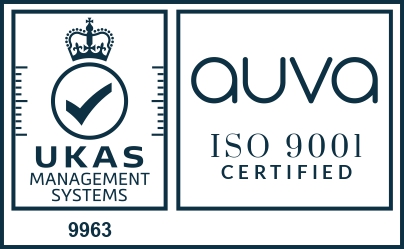In the fiercely competitive business landscape of Northern Ireland and the Republic of Ireland, attracting and retaining top-tier talent is vital. As an HR recruitment specialist at Hunter Savage, I've discovered that a strong Employee Value Proposition (EVP) is a critical factor in talent acquisition and retention.
An EVP, the unique set of offerings and values that positively influence prospective and current employees, is instrumental for a business to stand out. A compelling EVP not only attracts top talent but also nurtures employee engagement and loyalty.
Creating the perfect balance between employer brand awareness and competitive pay and benefits is crucial in today’s highly competitive marketplace. Both require regular reviews and a lot of organisations are fantastic at annual reviews and benchmarking salaries and benefits but don’t ignore the importance of your Employer's Value Proposition.
In this article, I will guide you through a six-step process to craft an effective EVP:
1. Assess your current offerings
2. Interview existing and past employees
3. Define the key components of your EVP
4. Write your EVP
5. Promote your EVP through the right channels
6. Review the results and adjust as necessary
Join me as we explore these steps to build a distinctive and impactful EVP for your organisation.
Understanding Employee Value Proposition (EVP)
Before we delve into the creation of an effective EVP, it's crucial to understand what an EVP precisely is and what it comprises.
In simplest terms, an Employee Value Proposition (EVP) is the unique set of offerings that a company provides to its employees in return for their skills, capabilities, and experience. It's an employment deal that articulates the give-and-get between employer and employee.
An EVP serves as a fundamental tool for attracting, retaining, and engaging a high-performing workforce. A well-structured EVP works to differentiate your organisation from its competitors, providing a clear and compelling reason why potential talent would choose and remain with your company.
Now, let's explore the main components of an EVP. These can typically be categorised into five key areas:
1. Compensation: This includes not only the base salary but also other financial incentives like bonuses, share options, pension plans, etc. Compensation is a fundamental aspect of an EVP, but it's essential to remember that it's not the only factor that matters to employees.
2. Benefits: These are the 'extras' that a company offers. Benefits can include health insurance, childcare support, gym memberships, company cars, and more. A comprehensive and innovative benefits package can significantly enhance your organisation's attractiveness.
3. Career: This component relates to the career and development opportunities that you provide. It includes aspects like training and development programs, opportunities for career progression, mentorship, and opportunities for international assignments.
4. Work Environment: This involves the physical workspace and the tools and technologies provided to the employee. It can also refer to flexible work arrangements, like the option for remote working or flexible hours, which have become especially important in the wake of the COVID-19 pandemic.
5. Company Culture: The last but certainly not least important component is your company culture. This includes the values your company upholds, the way employees interact with each other, the management style, recognition, and the overall atmosphere of the workplace.
A powerful EVP is more than just a list of offerings; it is a clear articulation of what makes your company unique. It's about creating a holistic employee experience that motivates people to deliver their best work and feel a sense of commitment and loyalty to the organisation. In the following sections, we will explore how to assess your current offerings and design an EVP that genuinely reflects what your company stands for.
The Role of EVP in Business Success

The Employee Value Proposition (EVP) plays an instrumental role in a company's success. Its value extends beyond merely attracting potential employees; it's a vital lever in driving productivity, engagement, and business performance. Let me share with you why I firmly believe in the transformative power of a compelling EVP.
- Attracting Top Talent: Firstly, a well-defined and robust EVP contributes significantly to a company's talent attraction strategy. Today, with the rising competition for top-tier talent, a compelling EVP serves as a distinguishing factor that sets your company apart in the crowded job market.
- Driving Employee Engagement and Performance: Secondly, a compelling EVP plays a critical role in enhancing employee engagement, which in turn, drives higher business performance.
- Nurturing Company Culture: Lastly, an EVP acts as the bedrock of a company's culture. A clearly articulated EVP can nurture a culture where employees feel valued and motivated to contribute their best.
Six Steps to Building an Impressive EVP

Crafting an EVP that resonates with your current and prospective employees is a systematic process, requiring deep introspection, analysis, and a solid understanding of your employees' needs. Allow me to walk you through the steps Hunter Savage and I follow to construct an EVP that makes an impact.
Step 1: Current Offering Assessment
The first step involves understanding what your company presently offers. This is not just about salary packages or job roles; it includes everything from your workplace culture to professional development opportunities.
- Importance of Understanding What Your Company Offers: Before you can identify what makes your company stand out, you need to have a clear understanding of your existing offerings. This will not only help you identify the strengths you can leverage but also point out the areas that need improvement.
- Suggested Methods for Assessment: Start by making a checklist of all potential components of your EVP. This may include elements such as compensation, benefits, career development opportunities, work environment, and company culture. Assess how well your organisation currently meets these factors.
- The Role of Employee Feedback in This Process: It's crucial to incorporate the perspective of those who experience your EVP daily - your employees. Conducting anonymous surveys or feedback sessions can provide valuable insights into what your employees value most about your organisation and what they feel could be improved.
Step 2: Interviewing Existing and Past Employees
Understanding your employees' perceptions and expectations is crucial to shaping an EVP that truly appeals to them. As such, engaging in open conversations with both current and past employees provides a treasure trove of information.
- Benefits of Interviewing Current Employees: By discussing their experiences and motivations, you can gain insights into what keeps them engaged at work, what they value about your company and areas they believe could be improved.
- The Value of Past Employees' Perspectives: Past employees can provide a unique viewpoint, helping you understand why people may choose to leave your organisation. Their feedback can highlight opportunities for improvement and prevent future talent loss. It is also a chance to hear what past employees are receiving from your competitors.
Remember, an EVP is not about what you think your employees want; it's about understanding what they truly value and need in their professional lives. Incorporating their perspectives into your EVP development is crucial to creating an offering that resonates with them.
Step 3: Defining Key Components of Your EVP
Once you've conducted your research and gathered valuable insights from your employees, it's time to start defining the core components of your EVP. This step is all about analysing your findings and shaping your EVP to align with your employees' needs and expectations.
- Using Research to Shape the EVP: Your research forms the backbone of your EVP. Use the feedback from your employees to answer key questions like: What kind of work environment does my target audience thrive in? What compensation and benefits package will attract them? What opportunities for growth are they looking for?
- Importance of Aligning EVP with Targeted Candidate Persona: Keep your target audience at the forefront when shaping your EVP. Your EVP needs to resonate with them, so it's important to understand their needs, values, and aspirations.
- Role Segmentation Based on Roles and Levels: Remember that a 'one size fits all' approach does not work when it comes to EVP. The needs and wants of a recent graduate will differ vastly from a seasoned professional. Segment your EVP according to different roles and career stages, highlighting the aspects that would appeal the most to each category.
Step 4: Writing the EVP
Now comes the moment of truth: putting pen to paper and crafting a compelling EVP statement. This is where you communicate the unique value your organisation offers, so it's critical to get it right.
- Importance of a Clear, Unique, and Inspiring EVP Statement: Your EVP statement should be a clear and inspiring expression of your company's unique employee offering. It should encapsulate what sets your organisation apart, making potential employees excited to join your team.
- Tips on Writing a Compelling EVP: Strive for clarity, simplicity, and authenticity. Avoid corporate jargon and instead focus on communicating in a language your target audience will understand and relate to.
- Ensuring Alignment with Employees' and Company's Expectations: Your EVP is not just a recruitment tool; it's a commitment to your employees. Therefore, it must align with your employees' expectations and your company's ability to deliver. Ensure that your EVP accurately reflects the experience employees can expect when working with your company.
Step 5: Promoting the EVP
Once you've crafted your compelling EVP, it's time to share it with the world. The way you communicate your EVP can make all the difference in how it is received by current and prospective employees.
- Importance of Effective Promotion of the EVP: A well-crafted EVP will be in vain if it doesn't reach your target audience. It's important to not only communicate but also champion your EVP at every opportunity, both internally and externally.
- Recommended Channels for Promoting EVP Internally and Externally: Internally, use company blogs, newsletters, town halls, and internal communication tools to promote your EVP. Externally, leverage your company's social media, career pages, job postings, recruiting videos, and employee referral programs. The goal is to make your EVP visible and attractive to prospective talent.
- How to Leverage Tools and Platforms for Promotion: Use digital tools like communication and collaboration platforms, social media management tools, and recruitment software to spread your EVP. This includes everything from sharing it in your email signature to including it in job descriptions.
Step 6: Reviewing and Adjusting the EVP
An EVP is not a set-it-and-forget-it type of deal. It requires periodic review and adjustment to ensure it remains relevant and appealing to your target audience.
- Importance of Periodic Review and Adjustment: As your company evolves and the expectations of your employees change, so too should your EVP. Regular reviews help you keep your finger on the pulse of your workforce's needs and expectations, enabling you to adjust your EVP accordingly.
- Key Metrics for Measuring the Effectiveness of the EVP: Measure the success of your EVP through metrics like engagement on job-related social media posts, increase in job applications, response from passive candidates, and employee retention rates.
- The Need for Constant Updates Based on Changes in Employees' Expectations: Just as market trends fluctuate, so do employee expectations. Keep in touch with your employees, continually seeking their feedback to understand how their needs are evolving. This will enable you to adapt your EVP to ensure it continues to attract and retain top talent.
Our Success Story at Hunter Savage

Examining successful examples can help in understanding the impact of a solid EVP. Let me share with you our journey at Hunter Savage and how our EVP played a pivotal role in our success.
Inside Hunter Savage's EVP
Here at Hunter Savage, we have crafted our Employee Value Proposition around four essential pillars: integrity, transparency, expertise, and specialism. These aren't just words to us - they shape every aspect of our operations and help us stand out in the recruitment landscape.
How Our EVP Fuels Our Success
I'd like to share how each aspect of our EVP directly contributes to our success:
- Integrity: This is our foundation. Integrity in all our dealings fosters trust among our clients and candidates, forming strong, long-lasting relationships - the lifeblood of any recruitment industry.
- Transparency: Transparency is another key to our success. By maintaining openness in our operations, we keep our employees and clients informed, establishing a reliable and dependable relationship. We understand that in the journey to success, clarity and understanding are as crucial as ambition.
- Expertise: Expertise lies at the heart of our value proposition. Our seasoned team's deep knowledge and proven experience in recruitment sectors give us an edge over competitors. This expertise enables us to provide high-quality, industry-focused advice to both our clients and candidates. It isn't merely about filling positions - it's about finding the perfect match that helps businesses thrive and allows candidates to grow in their careers.
- Specialism: Lastly, we pride ourselves on being specialists in our chosen sectors. This specialisation allows us to truly understand the industries we serve and tailor our approach to meet their unique needs. We've found that this strategic focus provides a superior experience for our clients and candidates alike.
Drawing Lessons from Hunter Savage's Experience
In sharing our EVP journey, I hope to shed some light on how powerful a compelling EVP can be. By aligning your company values with the expectations of your workforce, you're not just providing a place to work - you're creating a community and a culture that people will be proud to be part of.
But remember, your EVP isn't a set-it-and-forget-it proposition. It's essential to continually monitor and adjust based on your employees' changing needs, industry developments, and business growth. Your EVP should be a living document that evolves as your company does.
I truly believe that our success at Hunter Savage wouldn't have been possible without the solid foundation of our EVP. By paying attention to the value we bring to our employees, we've been able to build a thriving, successful company that stands out in our industry.
Wrapping Up
In essence, crafting a strong Employee Value Proposition is more than just an HR initiative, it's a strategic business decision. It serves as a magnet for attracting talent, fosters engagement, and cultivates a thriving organisational culture.
Creating a compelling EVP is undoubtedly an investment of time and resources but the payoff, in the long run, is well worth the effort. It is a vital tool for communicating your company's values and expectations, and for setting the stage for positive employee experiences.
So, I urge you to start shaping your own EVP. Gather insights, define your offer, and set a path for delivering it. An effective EVP is an ongoing dialogue with your employees - ensure it's one that resonates.
At Hunter Savage, our EVP has been instrumental in our success, underscoring the significance of developing and maintaining a strong proposition. So, here's to constructing an EVP that inspires, engages, and retains top talent.
For more information, to receive a copy of our salary survey, or to get in touch, contact me via the details below:
Stephanie Mulholland, Associate Director, HR
Email: stephanie@huntersavage.com
Mobile: 07808519861

speak to one of our experts
Contact usContact our team today and let Hunter Savage provide expert advice and guidance to help you find your dream job or to place top talent to drive your business.
download our
2026 salary survey
Download salary survey





